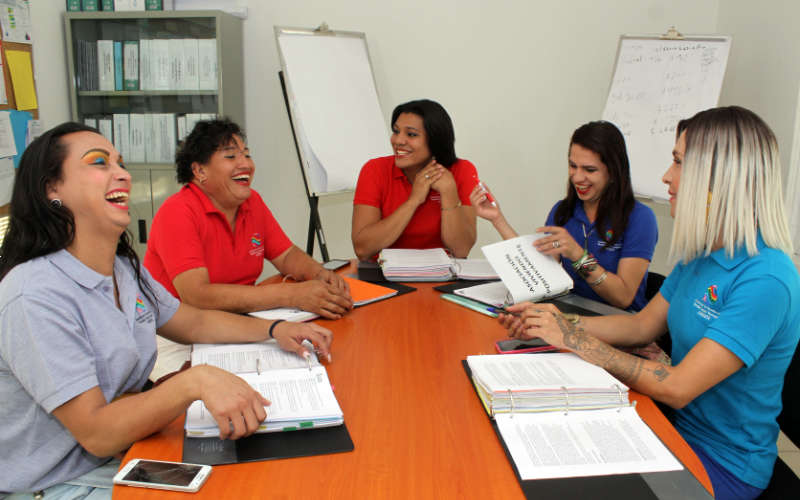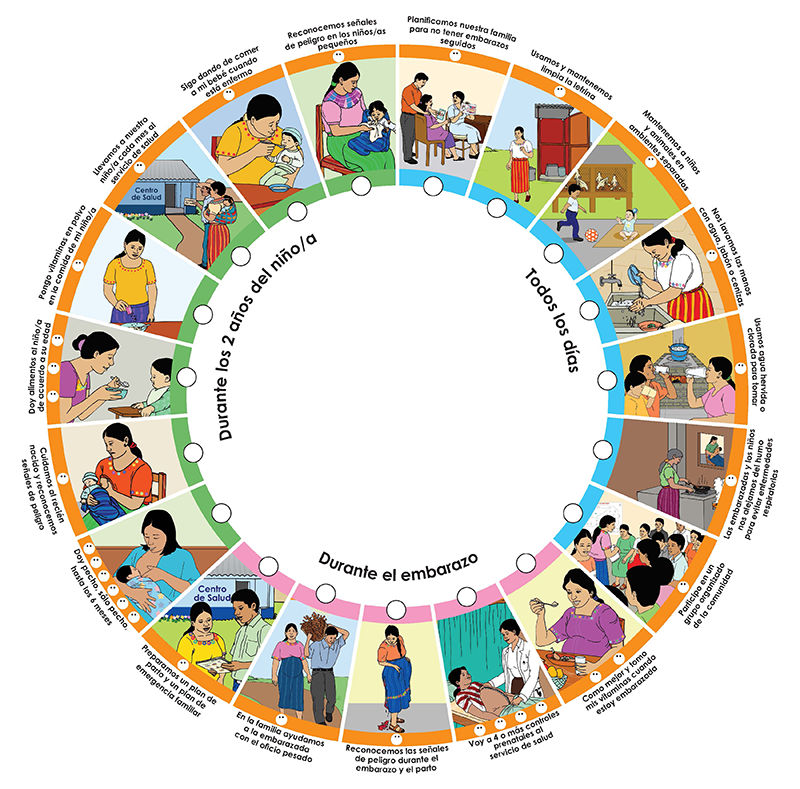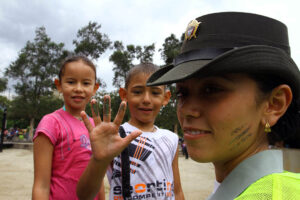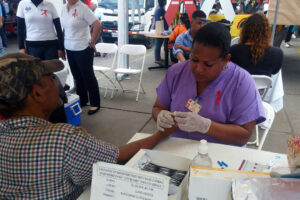A pediatrician conducts a neurodevelopmental evaluation on a child with microcephaly for USAID ASSIST in Peru. Photo credit: Karina Valenzuela
Latin America and the Caribbean
The Latin America and Caribbean region has made significant progress to improve the health of its populations. Since 1990, maternal mortality in the region has fallen from 140 to 81 deaths per 100,000 live births. And in the last five years, life expectancy has increased by five years. The region’s diverse social, political, and economic environments – coupled with chronic environmental threats including drought – contribute to some of the world’s highest rates of income inequality and health disparities. The COVID-19 pandemic has further exacerbated many of the region’s health challenges, including the unequal and limited availability of health services.
The region carries a heavy infectious disease burden with high rates of communicable disease, including HIV/AIDS, tuberculosis, and mosquito-borne diseases including malaria, Zika, dengue, and others. While the HIV prevalence in the region is not the highest in the world, and antiretroviral treatment coverage is high, the region continues to struggle with improving prevention and treatment to curb the spread of new infections. New infections among young people in particular are rising. In the area of maternal, neonatal, and child health and family planning, Latin America and the Caribbean are still falling short of global targets. Contraceptive use and the availability of contraceptives is uneven across populations, with socioeconomic differences playing a key role in the use and availability of modern contraceptives. And maternal, neonatal and child health remain a priority as maternal and child death have worsened in recent years and with the strain that COVID-19 has placed on limited health resources and services.
High rates of noncommunicable disease including cardiovascular disease, cancer, obesity, diabetes, and childhood malnutrition – coupled with risk factors including tobacco and alcohol use – have also become increasingly difficult to manage as Latin American and Caribbean health systems, infrastructure, and resources are stretched thin.

Forty years ago, one of URC’s earliest and most far-reaching projects, the Primary Health Care Operations Research (PRICOR) Project, supported research that identified ways of strengthening the use of community health workers, community mobilization, community financing of primary health services, and community-based commodity distribution across the region. This work was carried out in Bolivia, Brazil, Dominica, Dominican Republic, Ecuador, Grenada, Haiti, Honduras, Jamaica, Mexico, Peru, and Uruguay.
Since then, URC has supported ministries of health and social security institutes in the region to strengthen health systems and services through quality improvement (QI) activities, supply chain strengthening, social and behavior change, community mobilization, and health workforce development to improve infectious disease control, maternal, newborn, and child health, and reproductive health, among other key health areas. Through USAID, CDC, and other donor-funded programs, URC has worked with government, civil society, and private sector stakeholders as well as other international organizations to:
- Improve health governance, financing, planning, and the use of health infrastructure and resources;
- Manage and mentor local implementers of health programs;
- Prepare for, monitor, and manage global health security threats;
- Prevent, manage, and control infectious diseases including HIV/AIDS, TB, and Zika; and
- Implement programs that improve the health of communities, mothers, infants, and children.
Several of URC’s global projects, such as the USAID Applying Science to Strengthen and Improve Systems (ASSIST) Project introduced and scaled up the use of QI to strengthen health systems and put in place standards for service delivery and health system performance. URC’s projects improved HIV/AIDS services in Nicaragua and Panama, nutrition services in Guatemala, integrated surveillance of HIV and TB in Panama, and maternal and newborn health in Honduras and El Salvador. URC has a long history of providing support to the region’s supply chain efforts to ensure the provision of essential medicines and other health commodities for the delivery of essential services and in response to infectious disease threats.

URC has supported ministries of health in the region to improve TB case management, TB/HIV laboratory capacity, HIV counseling and testing, and data use for decision making and shared learning. Under the global ASSIST Project, URC supported 13 countries across the region with a targeted Zika response.
Our projects have strengthened essential obstetric and newborn care, improved quality and delivery of maternal, newborn, and child health care in facilities, introduced cultural adaptations of birth care in hospitals, expanded referral mechanisms for maternal, newborn, and child services, and developed patient-centered advocacy organizations.
More recently, URC has supported health improvement in the areas including HIV/AIDS in Nicaragua and Paraguay, food and nutrition in Guatemala, HIV and TB surveillance in Panama, and maternal and newborn health in Honduras.
Countries
URC’s experience in the region includes:
- Antigua and Barbuda
- Belize
- Bolivia
- Chile
- Costa Rica
- Dominican Republic
- Ecuador
- El Salvador
- Guatemala
- Haiti
- Honduras
- Jamaica
- Nicaragua
- Panama
- Peru


